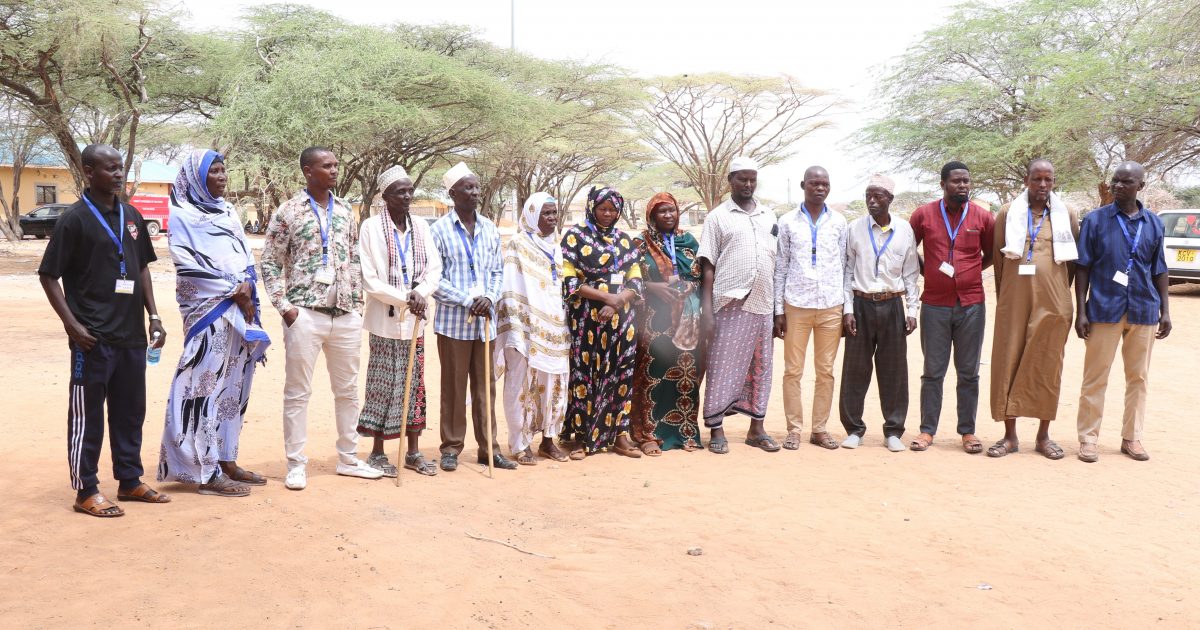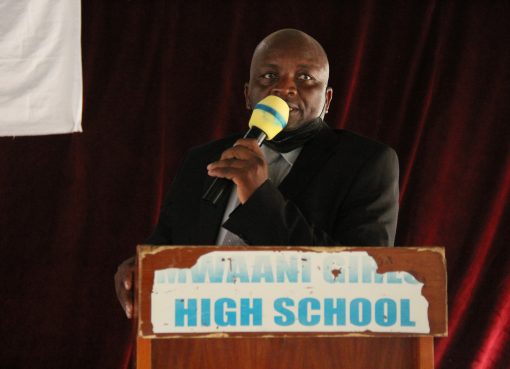Chana Chena community-based organization, in collaboration with the United Nations Development Program (UNDP) has officially launch an Alternative Justice System (AJS) in Madogo Tana River County
They unveiled unveiling a team of trained arbitrators to preside over community cases in the area.
The team, constituted in June this year underwent a 3-month training before starting to support the justice system in September and so far, they have helped settle31 cases.
The idea of AJS is aimed at decongesting the courts and also allow people who cannot afford to hire lawyers to represent them access justice at the community level.
The panel which draws its members from the elders, religious leaders, women and youth will preside over small cases as they work with chiefs and the police.
Speaking to press after the launch, the panel’s chairperson Kitheka Mwendwa said that the team has already successfully settled a total of 31 cases brought before it, with only 6 pending as at today.
“We are dealing with cases of community members who cannot afford to go to the courts. We are also working with the police and chiefs so that they refer the small cases that can be handled at the community level,” Mwendwa said.
“The AJS panel here has also involved the women and youth, who for a long time have not been involved in such councils due to the cultural practices,” he added.
Samaha Habona, a member of the panel said that having women in the panel will help many other women to come out and present their cases without fear.
“In our culture, for a long time we have not been recognized to sit in these kinds of panels where major decisions are made. Our fellow women will now be free to approach the panel for dispute resolutions without fear,” she said.
Fatin Hassan Said, from the Chana Chena organization said that they have trained community paralegal teams to sensitize the members on their rights and guide them on how to access justice when aggrieved.
“Sometimes, the courts have very long processes and our communities in Tana River County are poor such that they cannot afford the charges. With the alternative justice system, the communities can sit down with the panel and solve their issues within a short period,” said Said.
“We have trained the panel members on how they will be handling the cases without favoring any side and serve justice equally,” he added.
Said urged the national government administration officers and the police to recognize and work with the panel for the benefit of the citizens.
Madogo Assistant County commissioner Kenneth Akwiri said that the panel will be able to handle land and cattle conflicts and other family related conflicts which will help in reducing the backlog of cases already in the courts.
“We are here to familiarize the citizens with the Alternative Justice System, those that the panel will be working with and the cases the panel will be able to adjudicate and the ones they can’t handle,” Akwiri said.
“The panel will not be allowed to deal with cases involving gender-based violence, criminal cases or treason. We have told them what they can’t do,” he added.
The Kenya Constitution (2010) provides an overarching guarantee on access to justice for all persons. However, that access to justice has been hampered by high court fees, geographical access, understaffing of the judiciary, and a case backlog.
This may be why the constitution further provides for the use of alternative forms of dispute resolution for all citizens.
By Erick Kyalo




